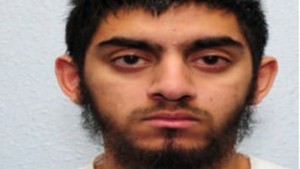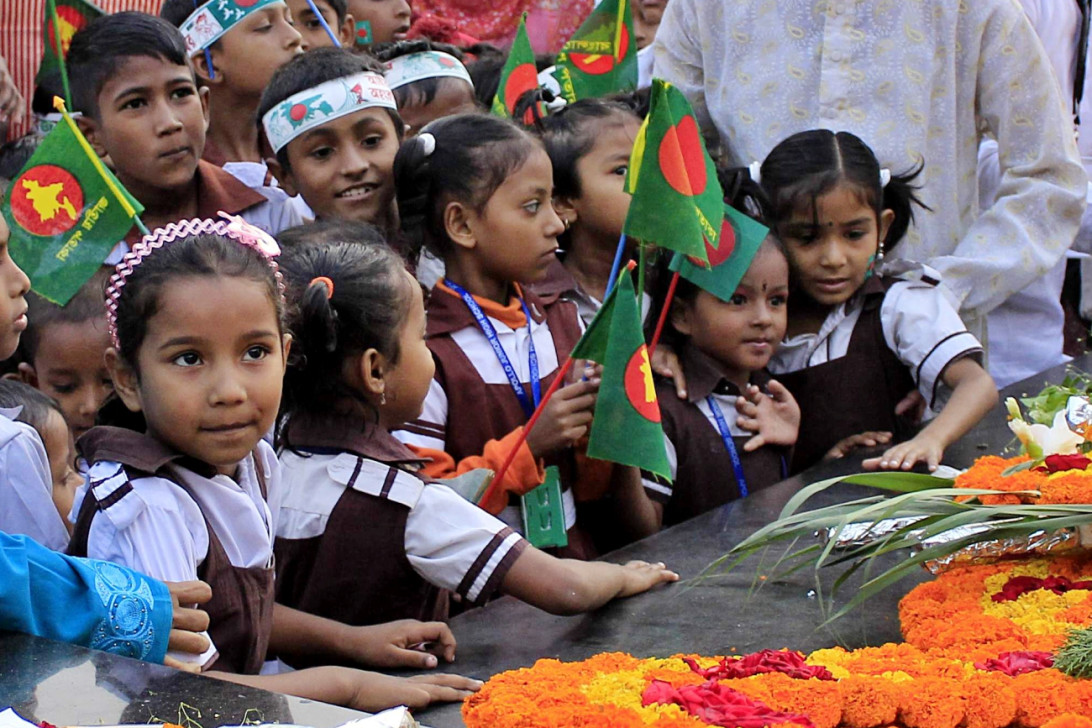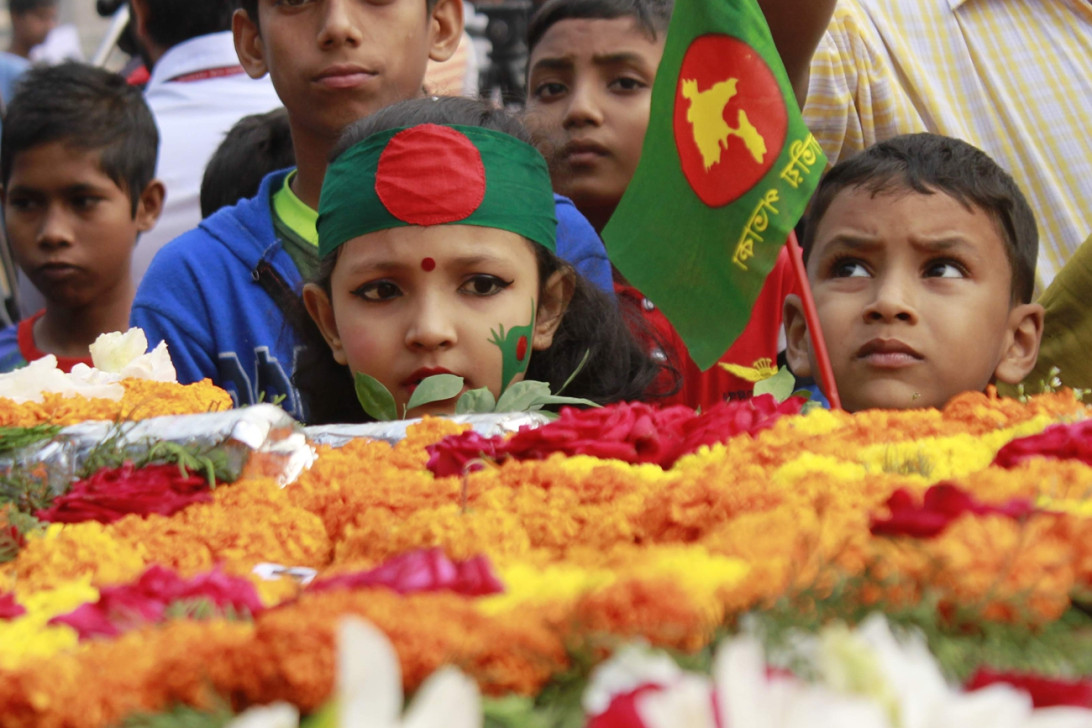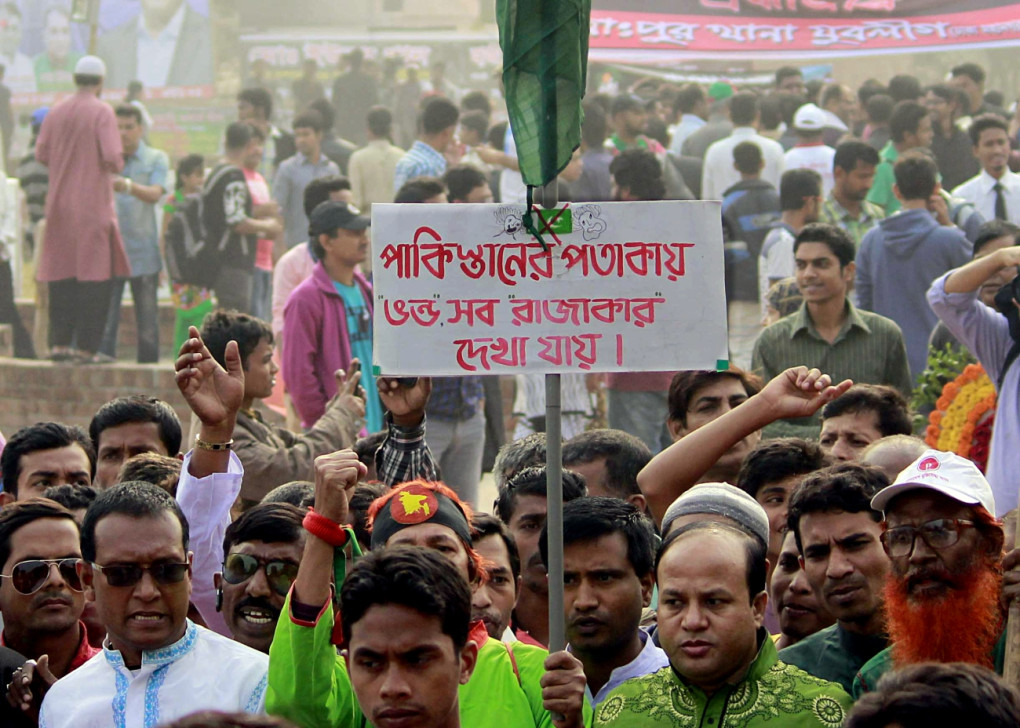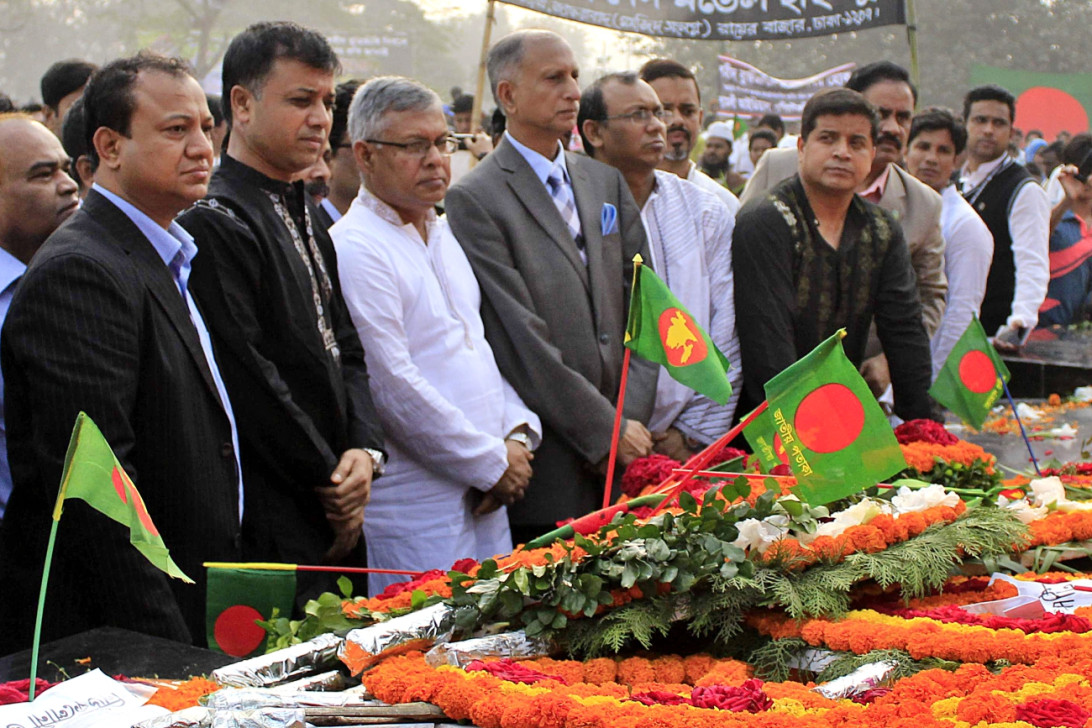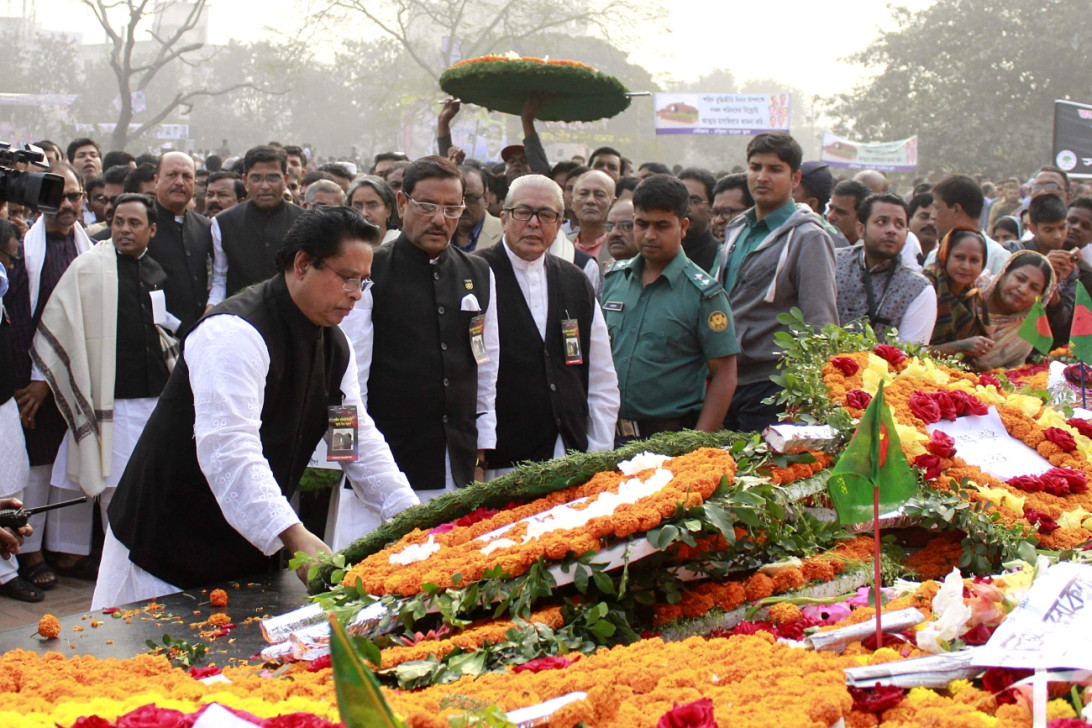The BNP chief’s paying tribute to Martyred Intellectuals’ Memorial was nothing but a mockery, Prime Minister Sheikh Hasina said yesterday, adding no one in the world could stop the war crimes trial initiated by her government.
The Pakistani occupation forces and their local collaborators, including Razakars, Al-Badr and Al-Shams, killed poets, writers, teachers, journalists, doctors and many other intellectuals from different fields on December 14, 1971 in the then East Pakistan.
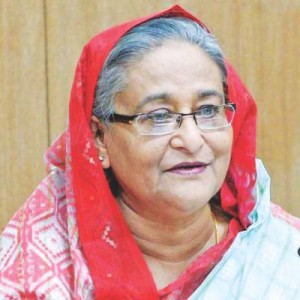
Bangladesh’ Prime Minister, Sheikh Hasina, daughter of Bangabandhu Sheikh Mujibur Rahman
Their aim was to make the country to be born, Bangladesh, intellectually bankrupt, the PM said at a discussion organised by the ruling party at the Institution of Engineers in the capital to mark Martyred Intellectuals Day.
“Those who committed such crimes are now undergoing trial and their trial will go on alongside the war crimes trial,” said Hasina, chief of the ruling Awami League.
Earlier, a one-minute silence was observed remembering the martyrs of December 14, 1971, four martyred national leaders and all the martyrs of the Liberation War, democratic movements of the country and the August 15, 1975 carnage.
The BNP chief is following in the footsteps of her husband Ziaur Rahman, the PM said, criticising Khaleda Zia for making those, executed for war crimes, ministers during her tenure as prime minister.
How she could pay tribute to the martyred intellectuals after making war criminals ministers, Hasina questioned.
“This is nothing but a mockery…. She (Khaleda) thinks our people do not understand anything, but they understand everything.”
Before the recent execution of two war criminals, Khaleda returned from London in a hurry, Hasina said, in a bid to save them through waging a movement.
The Prime Minister also took a swipe at those freedom fighters who accompanied Khaleda to the memorial.
Hasina continued saying that following the assassination of Father of the Nation Bangabandhu Sheikh Mujibur Rahman along with most of his family members on August 15, 1975, Bangladesh lost its glory and dignity it had attained through the war.
But as the Awami League assumed power after 21 years, she said, Bangladesh began regaining its lost glory.
Neither of the Pakistani occupation forces and their collaborators could forget their defeat and so they want to destroy the spirit of the Liberation War, halt the economic development of the country and force Bangladesh into slavery again, the PM said.
“Their conspiracy is going on and will go on, but we must move on foiling all the conspiracies.”
Hasina said some considered Ziaur Rahman the proclaimer of independence and a freedom fighter.
“If Zia were a true freedom fighter, he could not have put war criminals in state power.”
Hasina also reiterated her resolve not to bow to anyone and lead Bangladesh into becoming a hunger and poverty-free prosperous country by 2041.


